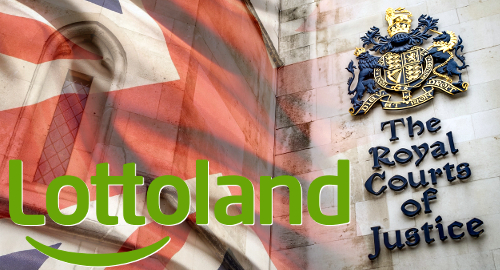 Lottery betting operators are mounting a legal challenge of the UK government’s plan to bar them from offering markets on non-UK EuroMillions lottery draws.
Lottery betting operators are mounting a legal challenge of the UK government’s plan to bar them from offering markets on non-UK EuroMillions lottery draws.
Last November, the UK government announced the results of a consultation that convinced the government to “introduce a new license condition to prohibit consumers in Great Britain from placing bets on EuroMillions games which take place outside the UK.”
The new license condition, which is set to take effect on April 6, was immediately decried by UK-licensed lottery betting operators such as Lottoland. The Lotto Betting Group (LBG), an umbrella group encompassing Lottoland and rivals World Lottery Club, Jackpot.com and Multilotto, has now indicated its willingness to challenge the “irrational” and “unreasonable” proposal in court.
The LBG has submitted a “letter before claim” for a judicial review of the license condition to Digital, Culture, Media and Sport (DCMS) secretary Matt Hancock. The LBG maintains that the new condition violates the trade laws of the European Union, of which the UK is (for the moment) still a member.
LBG issued a statement claiming that the UK government’s decision was “unjustified and was based on inconclusive evidence.” The LBG pointed to the government’s own National Audit Office report, which stated that the 2016-17 decline in National Lottery income devoted to good causes wasn’t due to lottery betting but due to a customer shift away from draw-based lotteries to instant games, which “have a lower return to good causes.”
The DCMS has yet to respond to the LBG missive, but a spokesperson told Out-Law.com that it would make its opinion known “in due course.”
When it launched its lottery betting consultation one year ago, the DCMS claimed that third-party betting on certain lottery draws was “contrary to the spirit and intention” of the UK lottery rules. This view was held despite the DCMS admitting that there was “no evidence” to support claims by the likes of National Lottery operator Camelot that third-party betting was harming funding for good causes.
Last June, the UK Gambling Commission fined Lottoland £150k for (in the regulator’s view) misleading customers into thinking they were “taking part in a lottery” rather than betting on the lottery’s outcome. A few months earlier, the UK’s advertising watchdog spanked Lottoland for a radio spot that failed to sufficiently distinguish between lottery draws and lottery betting.
Lottoland and its ilk have come under sustained attack from local lottery operators in various markets, including Australia. Last November, Lottoland complied with regulatory demands to restrict Australian punters from “synthetic betting” on the outcome of local lottery draws, although they can still bet on non-Aussie draws, which are Lottoland’s main revenue source.